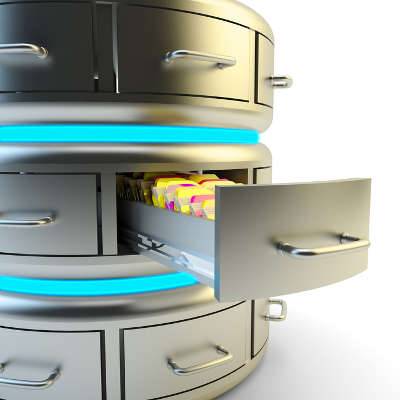Macro Systems Blog
6 Data Backup Best Practices that Make Your Business More Resilient
As a business owner, you’ve surely thought about what the future holds for your organization. However, one of the things that you need to think about that’s not often considered is the event of a data disaster. How can your business bounce back from such a catastrophic event? One of the first steps is understanding your data backup and disaster recovery process, as well as how you can improve your current setup.
Most organizations that don’t take advantage of a cloud-based BDR system still utilize tape backup. This is the act of storing data on magnetic tape--certainly better than nothing, but not without its disadvantages. We’ll also discuss some of the differences between the two as we take a look at what you should (and shouldn’t) ask of your data recovery solution.
DO Take Multiple Backups
It’s a common practice to take multiple backups, but the unfortunate truth of this is that it’s practically impossible to do so with tape. Or, rather, it’s difficult to get more than one backup out of the workday due to how resource-intensive and time-consuming they are. BDR allows you to take backups as often as every fifteen minutes so that your data backups will be as up-to-date as possible.
DON’T Store Your Backups in the Same Location
You could have all of the backups in the world, but if you store them in the same place, you could be left with nothing in the event of a disaster. It’s a best practice to store all of your backups in three locations at all times: in-house (in case your disaster isn’t centralized or too threatening), a secure off-site data center from which your data can be shipped overnight, and in the cloud where it can be accessed in a pinch.
DO Aim for a Quick Recovery Time Objective
It’s important that your business not remain inactive for long following a disaster. This results in crippling downtime that can create problems for your business. Most notably, you’ll be paying employees for not being able to work, and you’ll have to purchase new hardware. These expenses at the same time aren’t ideal, so it’s best to get back in business ASAP.
DON’T Wait Longer Than Necessary
The more time you spend recovering your data, the more time that’s being spent not being productive. This type of downtime can cost your business in the long run, and you may not be able to recover from such a blow. BDR can allow for practically instantaneous data recovery. Since your backups are stored in the cloud, they can be deployed to any device--including the BDR component itself--in a moment’s notice. This gives you time to find an adequate replacement for the hardware that has failed.
DO Shoot for a Maximum Recovery Point Objective
It’s a best practice to recover as much data as possible, so set your sights high and aim to lose as little as possible. This is called the recovery point objective. Having a set goal of how much data you will need to backup (and ultimately recover) in order to get your business back working productively is crucial to the continuity of your business.
DON’T Accept Data Loss
No amount of data loss is acceptable. This is a standard that you should strive for. BDR does this through taking backups every fifteen minutes so that you lose minimal data when a disaster occurs. In the case of tape backup, you could lose as much as up to 24 hours' worth of data, which is something that no organization wants to deal with.
If you’ve had enough of unacceptable data backup and disaster recovery practices, reach out to Macro Systems at 703-359-9211.




Comments